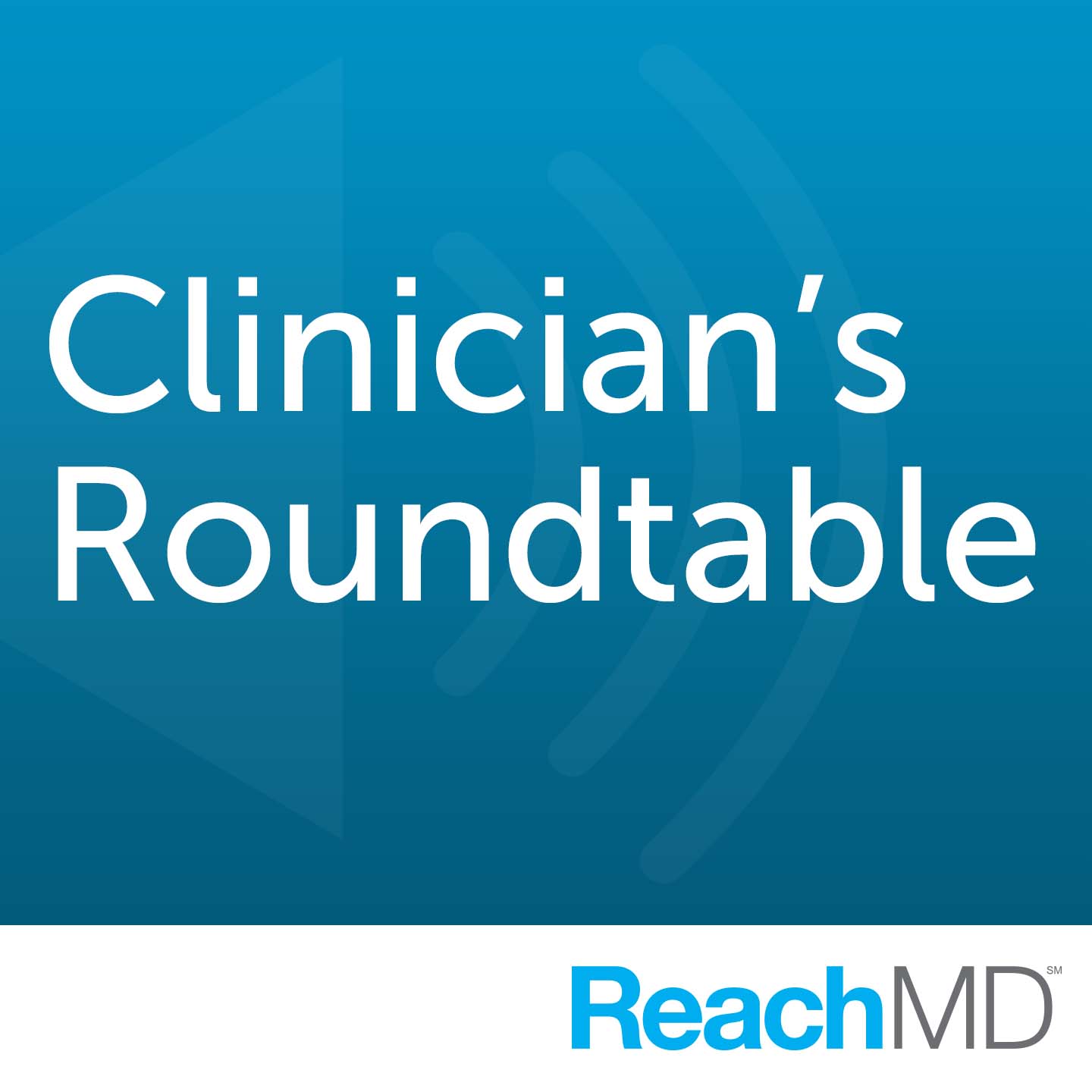

Clinician's Roundtable
ReachMD
Tune in to interviews with the top thought leaders in medicine exploring the clinical and professional issues that are foremost in the minds of the medical community. Join us at the Clinician's Roundtable for discussions on a vast range of topics that every medical professional should know about.
Episodes
Mentioned books

Jun 20, 2008 • 0sec
Olympic Training for Extreme Environmental Conditions
Host: Susan Dolan, RN, JD
Guest: Randall Wilber, PhD
Dr. Randall Wilber is a senior sport physiologist at the United States Olympic Training Center in Colorado Springs, Colorado. Dr. Wilber oversees the operation of the Athlete Performance Laboratory and works closely with America's best athletes and coaches. Hear Dr. Wilbur as he discusses how Olympic athletes train for extreme environmental conditions.

Jun 20, 2008 • 0sec
The US Olympic Training Center
Host: Susan Dolan, RN, JD
Guest: Randall Wilber, PhD
Dr. Randall Wilber is a senior sport physiologist at the United States Olympic Training Center in Colorado Springs, Colorado. Dr. Wilber oversees the operation of the Athlete Performance Laboratory and works closely with America's best athletes and coaches. Hear Dr. Wilber talk about his work and what life is like for athletes who live and train at the US Olympic Training Center.

Jun 20, 2008 • 0sec
The Best Caregivers Care for Themselves
Host: Susan Dolan, RN, JD
Guest: Mary Johnson, Chaplain
Chaplain Mary E. Johnson is an Assistant Professor of Oncology at the Mayo Clinic college of Medicine in Rochester, Minnesota. Chaplain Johnson has provided spiritual support to patients, their loved ones and staff at the Mayo Clinic for nearly 30 years. Hear Chaplain Johnson as she discusses how the best caregivers care for themselves.

Jun 20, 2008 • 0sec
How to Interact With Terminally Ill Patients
Host: Susan Dolan, RN, JD
Guest: Mary Johnson, Chaplain
Chaplain Mary E. Johnson is an Assistant Professor of Oncology at the Mayo Clinic College of Medicine in Rochester, Minnesota. Chaplain Johnson has provided spiritual support to patients, their loved ones and staff at the Mayo Clinic for nearly 30 years. Hear Chaplain Johnson as she discusses how to interact with terminally ill patients.

Jun 19, 2008 • 0sec
A Physician's Guide to Medical Tourism
Host: Bruce Japsen
Guest: J. James Rohack, MD
With approximately 150,000 Americans seeking medical care overseas, the American Medical Association (AMA) is offering guidance for these so-called medical tourists, many of whom are enticed by this option as a way to save money. Dr. James Rohack, president-elect of the AMA, joins host Bruce Japsen to detail how you can coach your patients through the process of seeking medical care abroad, helping to ensure that they enjoy a safe, high-quality experience.

Jun 19, 2008 • 0sec
A Treatment for Medical Claims: The First Health Insurer Report Card
Host: Bruce Japsen
Guest: William A. Dolan, MD
The AMA, perhaps turning the tables on the health insurance industry's push toward doctor ratings, has begun its first ever health insurer report card. Dr. William Dolan, AMA board member, tells Bruce Japsen about how the AMA rates certain business practices of health plans that slow payments to doctors and confuse consumers. The AMA calls the effort the "Cure for Claims," which rates major national insurers. For more information, refer to the following AMA website link: ama-assn.org/go/cureforclaims.

Jun 19, 2008 • 0sec
The Truth About Steroids
Host: Larry Kaskel, MD
Guest: Paul Howard, MD
Other than the name, Doctor-Prescribed steroids have little in common with the steroids that often get bad rap from athletic abuse. Our guest today, Dr. Paul Howard, President of Arthritis Health begins the conversation explaining the differences between anabolic and medical steroids. He and host, Larry Kaskel MD, talk about the various types of steroids, when they should be used, and for how long they can be used. They also explore the differences between Disease Modifying Agents (DMA's) and steroids.

Jun 19, 2008 • 0sec
The Role of an Olympic Chief Medical Officer
Host: Larry Kaskel, MD
Guest: John Cantwell, MD
Are you qualified to be the next CMO of the Olympic Games? Our guest, Dr. John Cantwell, Cardiologist and CMO of the 1996 summer games in Atlanta share his experiences managing the health of the athletes, their families and 1.5 million spectators as the CMO of the Atlanta Games in 1996. What were the greatest challenges? Were they prepared for the bomb? Join host Dr. Larry Kaskel to learn how Dr. Cantwell's preparation differs from the types of preparation required of the 2008 medical team heading to Beijing.

Jun 19, 2008 • 0sec
Hormones & Brain Development in Preemies
Host: Bill Rutenberg, MD
Guest: Anna Penn, MD, PhD
While medical advances have significantly increased our ability to give life to pre-term infants, more cognitive disabilities and disadvantages are present when these children reach school age. Is the deficit is due to early separation from the mother, or possibly our post-delivery treatments? Dr. Anna Penn, assistant professor of pediatrics at Stanford University School of Medicine, and a neonatologist at Packard Children's Hospital, talks with host Dr. Bill Rutenberg about her current research in this area. Dr. Penn specifically addresses how hormone levels impact the brain development of preemies.

Jun 19, 2008 • 0sec
The Looming Shortage of General Surgeons
Host: Bill Rutenberg, MD
Guest: George Sheldon, MD
The largest health problem in our country is a physician shortage, says guest, Dr. George Sheldon, Professor of Surgery at The University of North Carolina. There are 26% fewer surgeons today than in 1998. Why the shortage? In this segment host Dr. Bill Rutenberg explores with our guest many contributing factors and some solutions to the physician shortage problem. Learn how the physician gap will be filled and why a primary care directed health system may not be dependent on doctors in the future.


